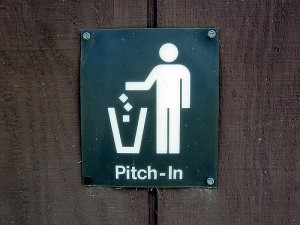Branding is everything these days, and the hyphen just hasn’t kept up. In fact, its identity is so weak, it is often mistakenly called a dash. Let’s review the key points we should know about this poorly understood punctuation mark.
One nearly extinct use
For openers, let’s remind ourselves that not so long ago we were hitting the hyphen key a lot more often because we were composing messages on typewriters, and we used a hyphen when a word didn’t fit at the end of the line. If we didn’t have room for all of neighborhood, we typed neigh- or neighbor- at the end of the line and finished the word on the next line. In the digital age, our software saves us the trouble by just dropping the entire word down.
Of course, we might still use a hyphen the old-fashioned way in a handwritten note, but many of us rarely write those anymore.
So when do we most need hyphens?
We need hyphens principally in a word like old-fashioned and when we are fusing words, as in cost-saving measures, parent-child issue, or one-of-a-kind project. Omitting them can momentarily distract the discriminating reader who catches the error – or do more damage if clarity is obscured. Here are two examples:
At our meeting we discussed an intriguing problem solving idea proposed by Emma. We understand this sentence, but we might have needed to read it twice. At the seventh word we thought the sentence was about a problem, but then we immediately saw the meaning was almost the opposite. It was about a problem-solving idea.
We couldn’t stop talking about the high flying acrobat. Hmm. Sounds as if the daring acrobat was on something. The more likely topic of discussion, however, was a high-flying acrobat.
Other hyphen errors
Obscuring clarity is the most crucial ramification of a misplaced or omitted hyphen, but we should work toward more assuredness in other fine points of handling hyphens effectively:
Q. Do we hyphenate a phrase like well known?
A. It all depends. When a potentially hyphenated phrase appears before the thing it is modifying, the answer is yes. When it comes after, we do not use a hyphen.
Professor Gordon is a well-known authority on protest movements.
Professor Gordon’s knowledge of protest movements is well known.
Q. So does a phrase like third grade get hyphenated when it describes the word that follows?
A. Yes.
Eric has been a third-grade teacher since 2010.
Q. What about when the first word in the potentially hyphenated phrase is an adverb ending in “-ly”?
A. Then we do not hyphenate.
This is a poorly understood concept.
Why it’s impossible to bat 1.000
We would be hard-pressed to hyphenate correctly in every document for two chief reasons:
1. Only a few generations ago, good-bye and co-operate were correct spellings, but those hyphens have disappeared. That’s an evolutionary process, however, so we aren’t all on the same page at any given moment. Some of us prefer e-mail; others, email. Who’s right?
2. Hyphens are tricky and require focus. Sometimes we want follow-up, and sometimes the hyphen is wrong:
Did you make those follow-up calls yet?
Please follow up with Liz to make sure she got the agenda.
The best we can do is continually improve at identifying those tricky situations – especially the ones where getting the hyphen right ensures clarity.
In addition to presenting workshops on writing in the workplace, Norm is a writer, editor, and writing coach. His 100+ Instant Writing Tips is a brief “non-textbook” to help individuals overcome common writing errors and write with more finesse and impact. Learn more at http://www.normfriedman.com/index.shtml.

